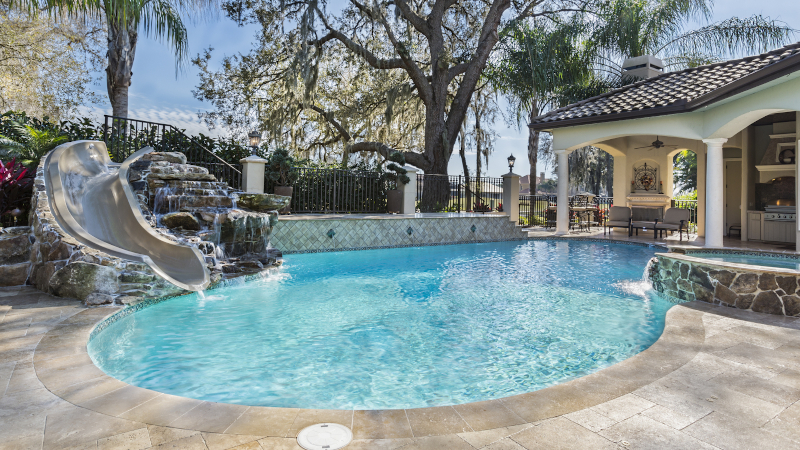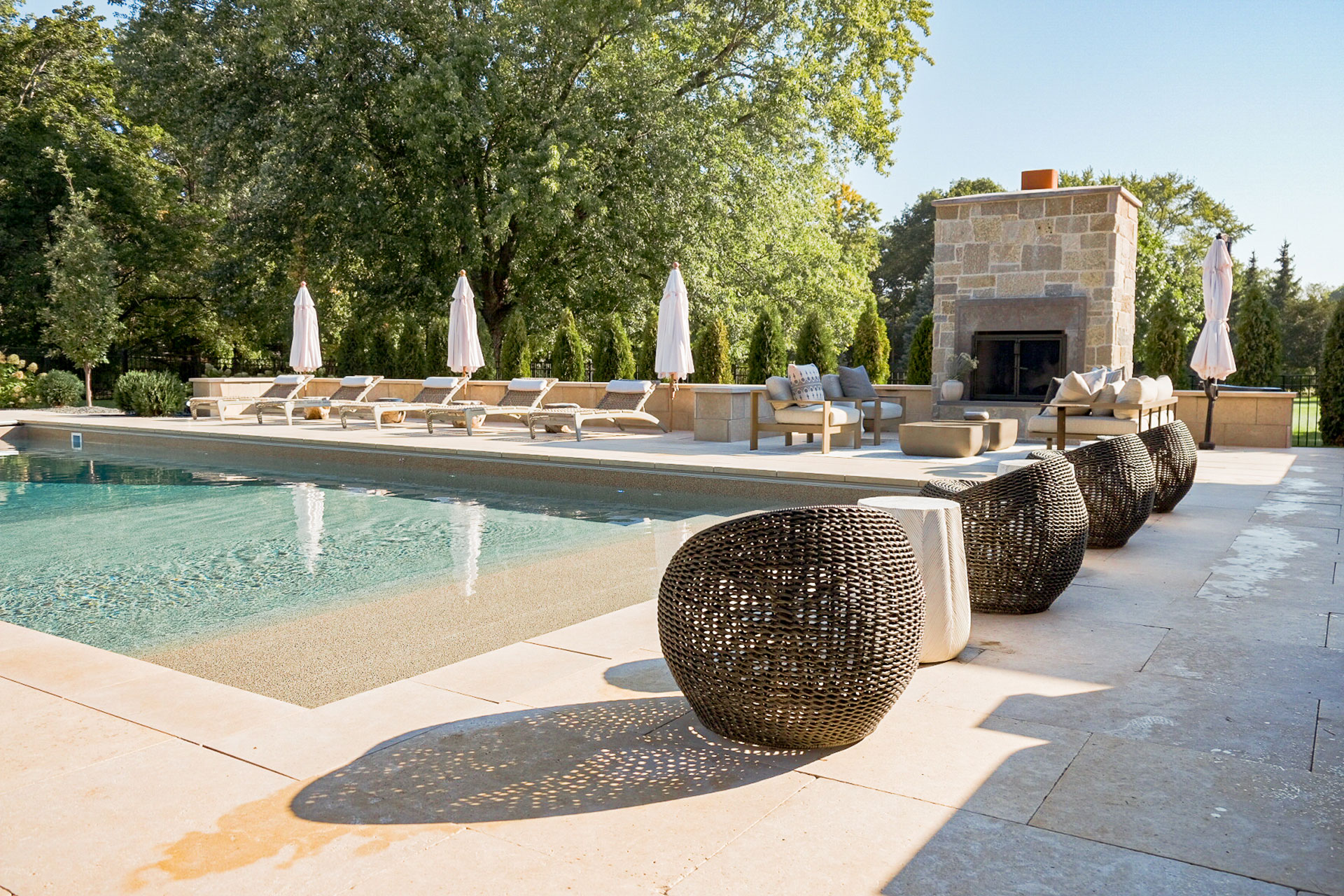
How to Heat an Above Ground Pool Effectively for Enjoyment?
Share
As summer rolls around, figuring out how to heat your above ground pool can truly elevate your swimming experience. Understanding how to heat an above ground pool not only extends your swimming season but allows you to enjoy pleasantly warm water even when the temperature outside isn't as inviting. Regardless of whether you're a tech-savvy individual or just someone who enjoys outdoor activities, learning about the various heating methods can be both intriguing and advantageous. In the following sections, we'll delve into several options to heat your above ground pool, examine their pros and cons, and provide you with detailed setup instructions.
By utilizing smart technology and energy-efficient solutions, you can ensure a comfortable swimming atmosphere while keeping a close eye on your energy bills. By the conclusion of this article, you'll possess all the knowledge necessary to heat your pool in a manner that aligns with your lifestyle and preferences.

Why is Heating Your Above Ground Pool Essential?
Heating your above ground pool transforms swimming into a much more enjoyable activity during the cooler months and in areas with unpredictable climates. It significantly boosts your family's comfort and enhances the overall experience.
Extended Swimming Season
Heating your pool enables you to indulge in swims earlier in the spring and later into the fall. This longer swimming season ensures you get the most out of your investment.
Enhanced Comfort and Enjoyment
Warm water can turn a chilly pool into a soothing retreat. Whether for exercise or relaxation, swimming in a heated pool is much more pleasurable.
Added Value to Your Home
A heated pool can significantly boost your property's market value. Prospective buyers often seek homes with enhanced outdoor amenities, and properties featuring pools typically command higher offers. For deeper insights, take a look at this article on pool value.

Heating Options for Your Above Ground Pool
Multiple methods and technologies are available for heating your above ground pool. Here, we'll categorize them based on installation complexity, energy efficiency, and upfront costs.
Solar Pool Heaters
Solar heating ranks as one of the most environmentally-friendly options available today. A solar pool heating system typically comprises solar panels, a circulation pump, and possibly a controller.
Advantages:
- Cost Efficient: Lower operating costs since sunlight is free.
- Eco-Friendly: No fossil fuels are used, leading to a reduced carbon footprint.
Disadvantages:
- Weather Dependent: Performance may vary on cloudy days.
- Initial Costs: Expenses can fluctuate based on your pool's size and specifications.
Gas Pool Heaters
Gas heaters provide quick and effective heating. They can warm the water in just a few hours, making them ideal for spontaneous swims.
Advantages:
- Rapid Heating: Excellent for last-minute swim plans.
- Reliable Performance: Not affected by weather conditions.
Disadvantages:
- Higher Operating Costs: Can become expensive over time, especially with frequent use.
- Environmental Concerns: Promotes pollution through fossil fuel usage.
Electric Heat Pumps
Electric heat pumps operate by extracting heat from the air to warm the water. They represent another energy-efficient option for heating your above ground pool.
Advantages:
- Energy Efficient: Lower operational expenses compared to gas heaters.
- Durability: Well-maintained heat pumps can last for many years.
Disadvantages:
- Upfront Investment: Initial costs may be higher.
- Performance Decline: Effectiveness may vary as temperatures decrease.
Covers and Blankets
Using a pool cover or blanket can significantly aid in retaining heat when the pool is not in use. Various types are available, from solar covers to thermal blankets.
Advantages:
- Heat Retention: Minimizes heat loss during cool nighttime temperatures.
- Cost-Effective: Affordable and easy to handle.
Disadvantages:
- Requires Manual Effort: Covers must be put on and taken off each time you wish to swim.
- Not a Complete Solution: While they help retain heat, they do not actively warm the pool.

How to Install Your Heating System
The installation process will differ notably based on your selected pool heater. Always consult professionals if you have any uncertainties regarding installation.
Solar Pool Heater Installation
1. Choose a sunny area beside your pool for placing solar panels.
2. Secure the panels as per the manufacturer's guidelines.
3. Connect the circulation pump, ensuring all plumbing is leak-proof.
4. Test the system during a sunny day to confirm its ability to warm the water effectively.
Gas Heater Installation
1. Pick a location near both your gas storage and the pool.
2. Have a professional install the gas line and connect it to the heater.
3. Ensure proper venting for the gas heater to maintain safety.
4. Follow the setup instructions for the return line leading to the pool.

Maintaining Your Heating System
Maintenance for Solar Systems
- Regularly check for debris on the solar panels.
- Inspect all connections for potential leaks.
Gas Heater Maintenance
- Check the gas line for leaks at least once a year.
- Ensure the air intake and exhaust are unclogged.
Heat Pump Maintenance
- Frequently clean or replace the filter.
- Perform an annual inspection of electrical connections.
Frequently Asked Questions about Heating Above Ground Pools
1. What is the cost to heat an above ground pool?
The expense varies depending on the heating method you choose and local energy prices. Gas heaters generally have higher long-term costs, while solar systems might have higher initial investments but lower ongoing costs.
2. Can I use a solar cover if I have a heater?
Absolutely! Utilizing a solar cover along with a heater can help reduce heat loss, allowing your heater to operate more efficiently.
3. How frequently should I maintain my heating system?
It's wise to perform maintenance checks at least once a year to ensure your heating system continues to function efficiently and effectively.
As an Amazon Associate, I earn from qualifying purchases.
